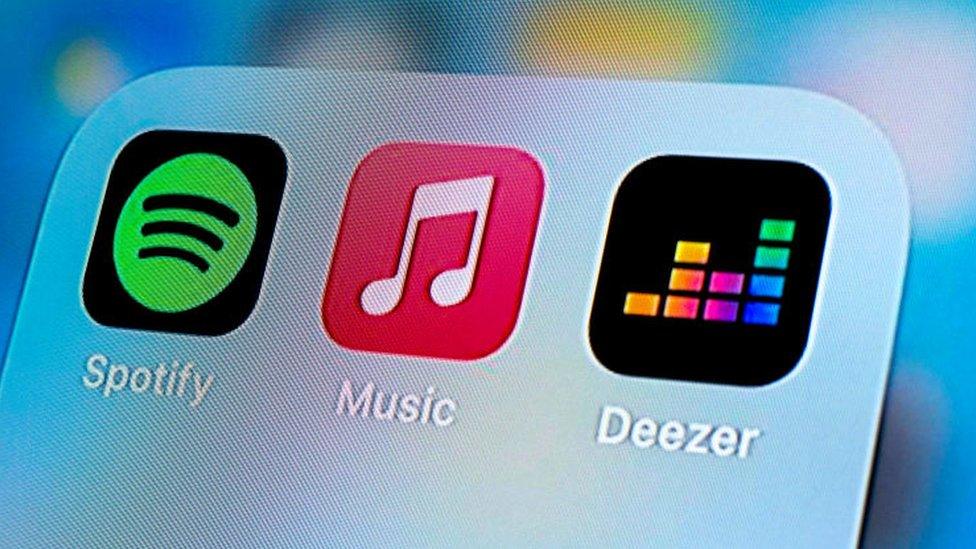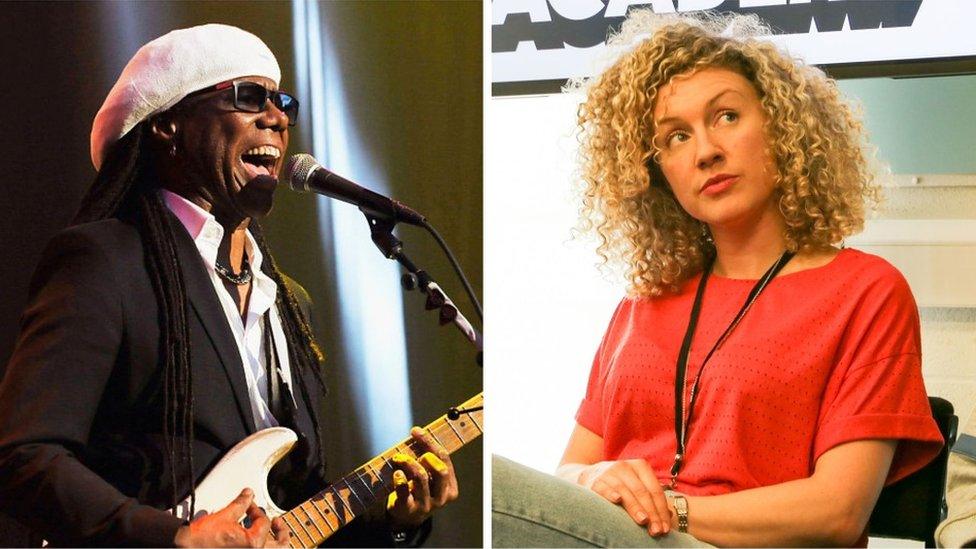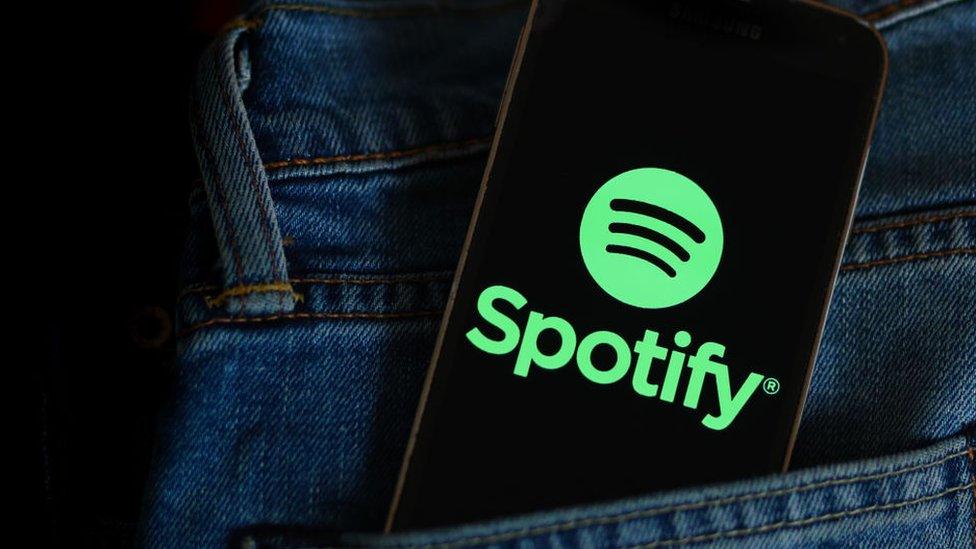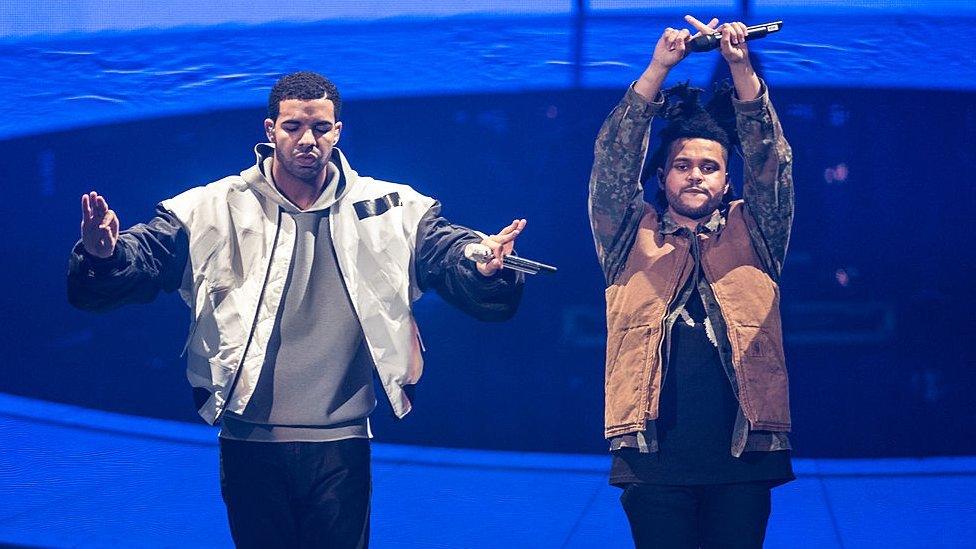Music streaming royalties to be discussed by government
- Published
- comments

The music industry has committed to improving metadata for tracking songs on music streaming platforms, following widespread criticism from artists.
The writers, performers and producers of songs will now be consistently identified.
These creators say they do not receive their fair share of royalties when tracks are played on streaming services such as Spotify and Apple Music.
It comes as the government launches a group to look into these concerns.
Sir John Whittingdale, minister for the creative industries, said the move would help the UK to "offer viable career opportunities".
"This landmark agreement on streaming metadata is a step towards ensuring UK musicians in the digital age are fairly credited and compensated for their contributions and creativity," he said.
"I'm pleased to be bringing the industry together so we can explore wider issues around music creator remuneration more generally."
Compensation for streaming music
The government has been investigating music streaming since 2019, and in 2021 identified an "imbalance" in royalties. It has launched a working group to specifically look at how artists are compensated.
Dame Caroline Dinenage, who chairs the Culture, Media and Sport (DCMS) Select Committee investigating the industry, said it was a "welcome step towards addressing the frustrations of musicians and songwriters whose pay falls far short of a fair level".
But it should result in concrete change and not be just a "talking shop", she added.
In 2020, the government heard from musicians such as guitarist, producer and songwriter Nile Rodgers, who said record labels retain up to 82% of the royalties they receive from streaming services.
Nile Rodgers says that streaming numbers are meaningless when it comes to getting paid
Sophie Jones, chief executive of the British Phonographic Industry, said she was concerned it might discourage investment at a time when there was the prospect of increased competition from artificial intelligence.
"Numerous studies have demonstrated that streaming has benefited consumers and artists alike, with record labels paying more to artists than ever before," she told the Press Association.
'My money, my music'
Will Page, former chief economist at Spotify, said the music business is currently debating the way money is being allocated: "For artists, if you get 1% of all the streams in Britain... you get 1% of all the cash generated in Britain."
This is because artists are not paid a set amount every time a song is played on Spotify.
According to its website: "Royalty payments that artists receive might vary according to differences in how their music is streamed or the agreements they have with labels or distributors."
Mr Page pointed to an alternative model, a user-centric payment system, which some argue may be fairer. He said this would involve "ring-fencing" a person's subscription fee to the music they listen to, making it "my money, my music".
This would result in a person's subscription fee being divided among the artists to whom they listen.
But he also raised concerns about whether this working group would make a difference: "We've had a three-year-long DCMS Select Committee inquiry, which had countless verbal hearings, written submissions, PDF reports - and we're doing it again."
- Published8 December 2020

- Published23 January 2023

- Published18 April 2023
